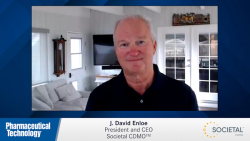
OR WAIT null SECS
- About Us
- Advertise
- Contact Us
- Editorial Info
- Editorial Advisory Board
- Do Not Sell My Personal Information
- Privacy Policy
- Terms and Conditions
© 2026 MJH Life Sciences™ , Pharmaceutical Technology - Pharma News and Development Insights. All rights reserved.
From Generics to Supergenerics
The significant contribution that generic drugs make to health services across Europe cannot be denied.
The significant contribution that generic drugs make to health services across Europe cannot be denied. As Nick Haggar, president of the European Generic medicines Association (EGA) pointed out during the 20th EGA Annual Conference, held in Madrid, 25–27 June 2014, the generic drug industry offers value to healthcare by providing increased medicines access to patients (hence, saving lives) while helping governments maximize their healthcare budgets. And these benefits are in addition to the employment and investment opportunities created.
A standard generic drug contains the same active ingredient as the original branded product and is used to treat the same condition at the same dose but at a price that is typically 20% to 90% less than the patented drug. The EGA estimates that generic drugs saves patients and European healthcare systems approximately EUR 35 billion each year.
Of the 16 health-related recommendations made by the European Commission for 2014–2015 to EU member states, 11 had to do with the subject of cost efficiency in the healthcare sector, which could be realised through increased uptake of generic drugs and improved prescribing practices. The Commission’s recommendation for France, for example, was to go beyond short-term savings and tackle pharmaceutical spending over the medium to long term, but no specific measures that would help France achieve this objective were given. The EGA noted that such vague recommendations by the Commission for the healthcare sector would only make it difficult for member states to implement measures and monitor their progress. According to the EGA, the Commission should refer to the role played by generic drugs in adding value to patients as well as the competitiveness of the EU pharmaceutical industry.
One question, however, is whether or not the European generic drug market is sustainable given that the blockbuster era has reached its end and the shift in the type of medicines losing patent protection in Europe over the coming years. According to the Boston Consulting Group, between 2014 and 2020, specialty drugs and biologics will make two thirds of the value of products losing patent protection in Europe.
The market for standard generics may look bleak but there are opportunities for supergenerics. Unlike the copycat version of the branded product with established bioequivalence, supergenerics offer a therapeutic advantage with product differentiation achieved through improved pharmacokinetics, such as with novel controlled release delivery, combination formulations, modified dosage strengths, or different routes of administration. The development of supergenerics requires limited financial investment despite being more expensive to develop than standard generics. The risk of failure, however, is low compared to innovative molecules; development timelines are shorter; the route to commercialization is far less complex; and there is some scope for exclusivity.
By investing in the development of supergenerics, pharmaceutical companies can remain competitive and create value through satisfying unmet medical needs or by targeting specific patient populations (i.e., geriatrics or paediatrics). For the bigger players, a strategy for success will include focussing on products with technologically challenging formulations, products that require significant regulatory support, or products with limited API availability, according to Frost and Sullivan. Medium-sized firms, on the other hand, could employ a differentiated approach that focuses on products with relatively higher profit margins and time their market entry appropriately.


